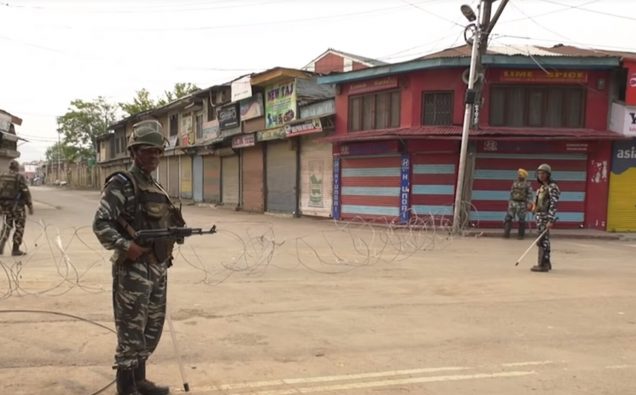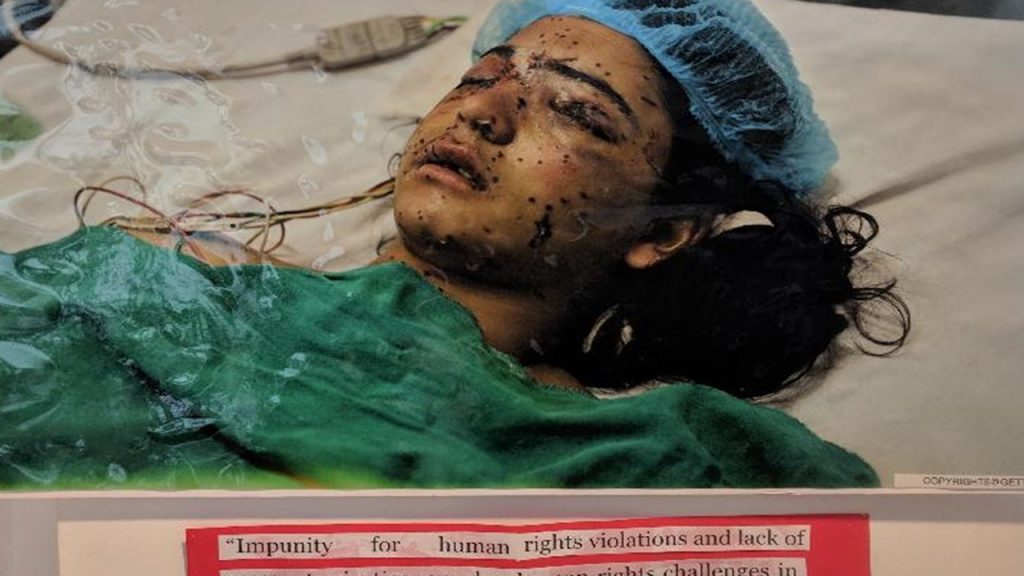
Two members of Congress have asked the Trump Administration to send a clear message to India on humanitarian crisis in Kashmir and the imperatives of democracy, as the disputed region remains besieged since New Delhi’s August 5 suspension of its autonomy.
In a jointly written letter addressed to Secretary of State Mike Pompeo, members Pramila Jayapal, an Indian origin politician, and James McGovern also called upon New Delhi to give access to independents observes into the Jammu and Kashmir territory under its administration.
“UN experts have already spoken out forcefully to condemn India’s actions and potential abuse of human rights in Kashmir,” the two House Representatives write.
“At this month’s meeting of the UN Human Rights Council, we urge the United States delegation to push for immediate action on these issues.
“The United States must send a clear message that democracy requires transparency, due process, and freedom of assembly and speech, even in the most complex of situations,” the letter concludes after taking note of restrictions on freedoms and credible media reporting that conveys a grim picture of the situation.
I continue to be deeply concerned about credible reports of a humanitarian crisis in Jammu & Kashmir. Even in complex situations, we look to strong democratic allies like India to uphold basic human rights and due process.
Read my letter with @RepMcGovern to @SecPompeo ⬇️ pic.twitter.com/sVwVwXFyWy
— Rep. Pramila Jayapal (@RepJayapal) September 11, 2019
Kashmir has been under sharp international media focus since India’s nationalist Prime Minister Narendra Modi changed constitutionally mandated status of Kashmir without consulting the Kashmiri leaders. Several Kashmiri leaders including two former chief ministers remain under house arrest. According a Reuters report Thursday, the Indian forces have detained and arrested 4000 people and transferred them to different parts of India.
In the letter addressed to Pompeo, the two legislators urge the Trump Administration to “press the Indian government to immediately end its communication blackout of Kashmir.

A picture taken by Views and News of a poster exhibition on Kashmir at Pakistan Embassy in Washington D.C.
Since the region’s descent into tensions between India and Pakistan and precarious human rights violations in the disputed territory, President Trump has offered to mediate several times for a way out.
New Delhi has declined to accept any third party role in talks over what it calls a bilateral dispute between India and Pakistan.
Meanwhile, Pakistan’s foreign minister lambasted India’s continuing lockdown of the more than 8 million people in Kashmir at the UN Human Rights Council meeting in Geneva.
While ending Kashmir’s autonomy, Modi had promised integration and economic development but Indian Opposition and progressive voices as well as the United Nations and world human rights bodies have condemned India for its move and use of pellet guns to quell dissent.
Pakistan’s Prime Minister Imran Khan has termed Modi’s move as “fascist” and a repeat of what Nazis did to people during the WWII.

















